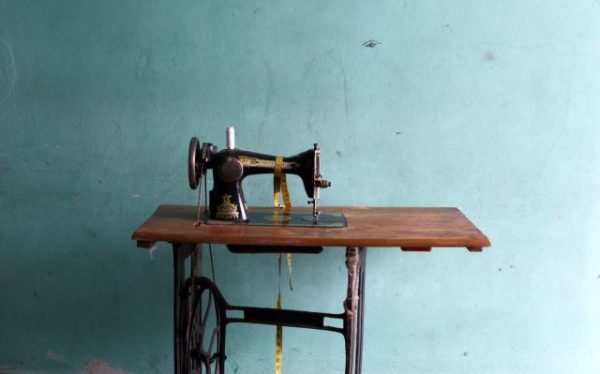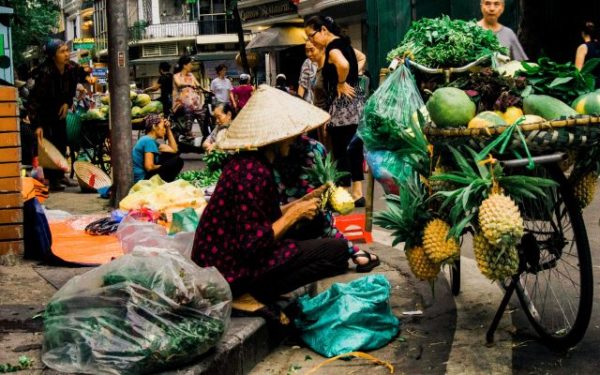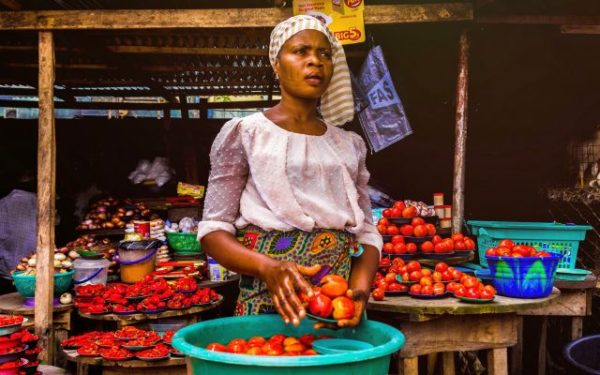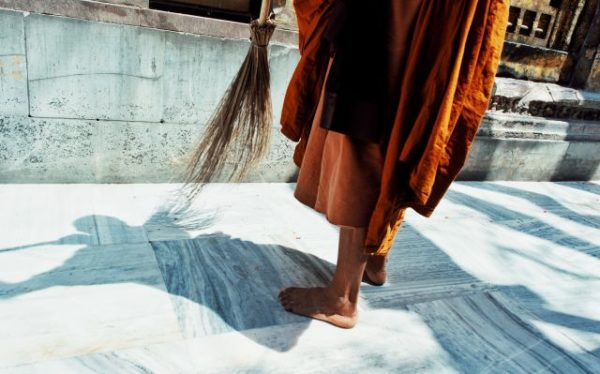The job and economic crisis is deepening around the globe, thanks to coronavirus. But for the world’s poorest people, livelihoods have disappeared overnight. Find out how informal workers are struggling with no jobs, no income and no food as the COVID-19 pandemic takes its toll.
“People die from coronavirus but we will die from hunger. We will do any work that we can get. We are not scared of corona. All we want is a job.”
Devi, a mother of five used to roll incense sticks at a factory in the southern state of Karnataka, India before coronavirus hit and the government ordered a country-wide shutdown.
As a casual worker, Devi worked enough to earn about 1,800 Indian rupees a month (around £19) to provide for her family.
Most days around noon, Devi walked to a local factory where she would roll 5,000 incense sticks till 8.30pm at night.
But since the lockdown measures have been implemented in India Devi has found herself without a wage and a way to feed her children.
It has been 40 days since the factory closed and she lost her major source of income.
“Now I send [my children] to get food from anywhere”, she said. “I do not worry about my hunger. But when I see my children suffering, I suffer too.”

Devi is a mother of 5, and a worker in an incense factory in Karnataka, India, who has been out of work, along with her husband, for over a month due to COVID-19. She is struggling to feed herself and her children, relying on family members and AA rations Credit: Malarvizhi/ActionAid
Livelihoods of the world’s poorest were already precarious before COVID-19 hit
Livelihoods of female informal workers were already quite fragile before the COVID-19 pandemic.
Over 740 million women work in informal jobs worldwide ranging from manufacturing, street vending, domestic work to subsistence farming1.
In Asia, Africa, and Latin America large numbers of women live hand to mouth, relying on daily wage, part-time and casual work to make ends meet and put food on the table for their families. They don’t have job protection schemes, savings, access to credit or social security when work dries up.
These informal or grey economies are known for being unstable, notorious for poor remuneration and often come with unsafe working conditions. Most provide casual wages that are not shielded by labour laws or bolstered with social safety nets, and are sometimes accompanied by harassment at work.
The coronavirus lockdown in Europe and the US has restricted our working life in many ways — working from home, reliance on information technologies and going on furlough. But in doing so, it has laid bare the differences and inequalities particularly in the poorest parts of the world — especially in the ways that livelihoods have been eviscerated.

Garment workers in Myanmar and Bangladesh
The coronavirus pandemic is taking a devastating toll on Myanmar’s informal workforce, particularly those who work in factories.
Government figures indicate that more than 60,000 factory workers in Myanmar have lost their jobs since the start of the crisis, including those working in garment factories, most of them women.
Women make up 90% of the workforce employed in garment and textile factories in Myanmar.2
Young women migrate from Myanmar’s rural regions to urban areas of Yangon and Mandalay to work in garment factories.
But due to lockdown restrictions around the world, demand for clothes and fast fashion is drying up, and having a knock-on effect on the supply chain.
Global fashion brands have reduced orders orders and clothes shops in the UK, USand Europe are closed during the pandemic. And as they do, manufacturing factories in the global south also slow down or close production, passing on the effects of the pandemic by laying off thousands of their workers without any recourse.
Like many informal workers, garment workers in many countries do not have contracts with their employers and no protections. Once a factory closes and the workers’ employment is over, they are on their own.
Without any income, these women cannot meet their basic needs nor send money back home to their villages where whole families depend on them for survival.
Phyo, who leads ActionAid Myanmar’s work supporting garment workers, said:
“Garment workers don’t care about catching COVID-19, their main worry is that they will starve. Each day without work means another day without food. People have lost their only means of livelihood, for themselves and the families that they support.”
31-year-old Ma who works as a tailor at a factory, tells how the factory owner left Yangon without paying more than 300 employees who haven’t received their salary since January.
“With this current situation, we have to be worried about dying from a lack of food first. We just want our salary for the time that we have worked,” she says.
Some workers who still have to go to the factories for work, face unsafe working conditions and a lack of protection during the coronavirus pandemic.
ActionAid’s Phyo spoke to one woman who was working in a local garment factory.
“She told me that there are no facemasks available and there is no access to clean water, meaning no one can wash their hands.
She told me people are worried about getting infected, but everyone says their livelihoods are more important than getting the virus. If these workers do not work, they simply can’t live.”
Similarly, in Bangladesh’s garment industry, 85% of the four million workers employed are women from rural villages who are paid poorly and restricted from unionising historically.
Bangladesh is one of the biggest global suppliers of western clothes with around 4,000 factories. Now under coronavirus lockdowns, more than 2 million garment workers – most of whom are women — have lost their jobs without severance3.
The garment factories also have a poor record for health and safety conditions at the workplace. In April 2013, the Rana Plaza garment factory in Bangladesh collapsed killing and injuring mostly young women employees and exposed the horrific working conditions in garment factories in Bangladesh.
Seven years on from Bangladesh’s Rana Plaza tragedy, and garment workers’ live are at risk again, with Bangladesh being hit with uncertainty amid $3 billion in cancelled orders.
Thousands have protested over unpaid wages and risked infection to avoid hunger. Where some factories have remained open, employees are being forced to work without adequate protection.


Market and street vendors in Ghana
In Ghana, many women rely on their own small businesses to survive.
Here, selling and trading at markets is an integral source of income for womenwho work in the informal sector.
However, COVID-19 restrictions have drawn tight boundaries around people’s work and interactions. Social distancing rules and bans on public gatherings have meant marketplaces are closing, pulling down the shutters on women’s livelihoods.
Margaret Brew-Ward, Women’s Rights and Campaigns Manager at ActionAid Ghana says that under Ghana’s lockdown, things are very difficult. City mayors in Ghana either close the markets where most women make their living, or when the markets stay open, people are too afraid to go out to the markets and shop around leisurely.
“In our parts of the world we have open markets – we don’t have huge malls like in the developed world – where people interact and do their business… And in almost all these markets, the majority of the traders are women and therefore their incomes are affected…especially since the majority of women working in the informal economy have very little social protection measures like social security and a regular income.”
Margaret has noticed many women are choosing to expose themselves to the virus by working rather than staying at home, as they see it as a less significant threat than hunger.
“It’s about livelihoods versus social distancing; [people think] I need to make money and if I don’t make money, I can’t feed my family.”
In the Greater Accra region of Ghana, a young woman, Salomey used to trade at her local market every day until the lockdown, but now she is not seeing many sales under the new rules.
“The pandemic has affected my business. I find it difficult to go to the market to get my items to sell. People also no longer buy like before because of fear of contracting the disease.”
Margaret Brew-Ward has seen this first hand.
“People come to the market and quickly go and get this and get out. Previously, people just walked around the market and took their time and did a lot of shopping. In that case, you’re able to convince people to buy things. But this time, people are afraid.”
There are at least 67 million domestic workers worldwide, not including child domestic workers. Credit: Pexels
Domestic workers in Brazil and Kenya
Over 60 million domestic workers around the world provide their services to other people4, so that men and women can work outside their homes and keep national and local economies running.
Domestic work is work that usually entails tasks around the management of a household, such as cleaning, cooking, childcare, gardening, driving or taking care for the elderly or sick in private households.
Even though this work is carried out by both men and women, men often working as drivers or gardeners, 80% of domestic workers around the world are women, working in usually undervalued and poorly paid roles.5
For a lot of these women, who mainly come from poorer socio-economic backgrounds, domestic work is the main source of income for them and their families.
But with the arrival of COVID-19, domestic workers are facing pressure to either keep working in poor conditions or accept layoffs with no payment.
In Brazil a country — with over 7 million domestic workers6 — some employers are still insisting on their maids, cleaners, and carers to come to work.
A lot of the women who hail from the poorer slums of Brazil’s cities travel long distances to wealthy suburbs to continue to provide their services under duress or as a way to keep their income flowing.
Even though Brazil’s government has set up an emergency fund for domestic workers, introduced laws to reduce their hours and advised employers to suspend their contracts for 60 days with pay, some employers are still flouting the rules.
As with other informal workers, millions of domestic workers do not have formal contracts or agreed terms that help protect them or allow them to defend themselves from exploitation when faced with coercion or threat of layoffs.
Those who continue to work are facing an increased risk of contracting the disease as they travel on public transport, are exposed to their employers and others in their line of work and have no way of working from home in this role.
Similarly, in an informal settlement on the outskirts of Nairobi, Mukuru, most of the residents are informal workers engaged in seasonal jobs in factories; selling vegetables and street food; and domestic work.
30-year-old Selina is single mother who relies on ad-hoc jobs such as cleaning to support herself and her two children.
Before the coronavirus pandemic, she would wait at the gates of middle-class residential estates for residents who needed someone to do small, domestic jobs such as washing clothes or cleaning the house.
Nairobi and other parts of Kenya are now in lockdown due to the coronavirus pandemic – and Selina’s work has dried up. Now, when she goes to the estates, security guards chase her away.

Women are more likely than men to have a job in sectors where pay and conditions are the lowest. Credit: Karin Schermbrucker/ActionAid
“Life has changed for the worst. I used to wake up, go wash [clothes] for like three people, or sometimes you get one [job] to clean their house or fetch water. I would get between 500-700 Kenyan Shillings. On a bad day you can even get 200 Kenyan Shillings. We used to go to the [middle-class] estates and get casual jobs, but now we are chased away, especially by security guards. They say it is because of this coronavirus pandemic, they say people should be careful.”
Scarlin, aged 33, is also a single mother living in the Mukuru slum on the outskirts of Nairobi. Like Selina, she would wait at the gates of middle-class estates for residents who needed someone to do cleaning jobs.
But now the people she used to work for are at home, doing their own housework. She has to rely on friends to give her basic items such as flour just so she can feed her children.
“This coronavirus pandemic has made my life even harder. I know coronavirus is a very serious disease that spreads so fast and I am also hoping it ends soon. Life is unbearable. We hope normalcy will resume soon.”

Many women have no basic protection or rights at work, because their jobs are not covered by labour law. This means that they will not receive sick pay, maternity pay and cannot join a union, exposing them to high rates of human rights abuses Credit: Pexels
An unequal working world
The coronavirus pandemic has thrown into sharp relief the inequalities of the world we live in, especially in how we work and live.
Informal workers who were already invisible due to the type of work they did and relied on functioning economies to survive are now either cast aside to the margins of society or forced to risk their health and lives to guarantee their own and their families’ survival. A choice not everyone has access to, but also, no-one should have to make.
Without job security, social protections, access to credit or savings, the restrictions from the pandemic are effectively pushing the poorest in the world into further poverty.

Women from developing countries are among the most vulnerable to exploitation in global supply chains. Approximately 80% of the world’s garment workers are women. Fabeha Monir/ActionAid
What is ActionAid doing to help?
ActionAid is trying to ease the financial burden on some of the most vulnerable workers, including single women and pregnant women, by providing food and cash transfers.
In Myanmar, we are distributing hand sanitizers to workers where there is limited water and raising awareness about social distancing, and ways to protect themselves.
ActionAid Myanmar is supporting 150,000 garment workers in five industrial areas of Yangon, Bago and Ayeyarwaddy by providing public health information in local languages on how to prevent the spread of coronavirus, follow self-isolation and handwashing guidance.
We are also supporting female factory workers who have experienced gender-based violence through our network of paralegals.
In Ghana, ActionAid has plans to reach 48,000 people across 20 districts in Ghana with food and other supplies. We are also preparing to provide hand soaps, sanitisers, and cash transfers to women
In India, ActionAid have extended support across 24 states by providing dry ration kits to vulnerable families, cooked food to individuals by running community kitchens and by also by providing sanitation kits with masks, sanitisers, and soap.
In Brazil, we are working with partners to raise awareness about coronavirus and planning projects focusing on food security, women’s rights, and public services.
In Kenya, ActionAid is providing poor and marginalised women like Selina and Scarlin with cash transfers to enable them to meet their daily subsistence needs during the COVID-19 pandemic.
